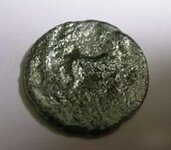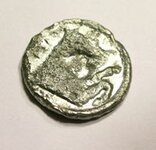salty dog
Full Member
- Aug 10, 2005
- 142
- 0
- Detector(s) used
- Ace 250, Garrett GTP 1350, Garrett Pro Pointer
Where would my friend need to take this to see if it might accidentally be real. I know he will want to know this.
Any help will be greatly appreciated.
[size=14pt][size=10pt]This is how this was originally posted.[/size]
I'm posting this for a good friend.
He found this in some dirt the other day and we can't figure out what it is.
It has what looks like a horse on one side and I can make out what looks like the legs of a horse on the other side. I can't make out any thing else.
I'm not sure what it's made of. It registers between a penny and a dime on my ACE 250.
It is about the size of a quarter and a little thicker.
It was found in south Mississippi.
Any help will be greatly appreciated.[/size]
Any help will be greatly appreciated.
[size=14pt][size=10pt]This is how this was originally posted.[/size]
I'm posting this for a good friend.
He found this in some dirt the other day and we can't figure out what it is.
It has what looks like a horse on one side and I can make out what looks like the legs of a horse on the other side. I can't make out any thing else.
I'm not sure what it's made of. It registers between a penny and a dime on my ACE 250.
It is about the size of a quarter and a little thicker.
It was found in south Mississippi.
Any help will be greatly appreciated.[/size]








